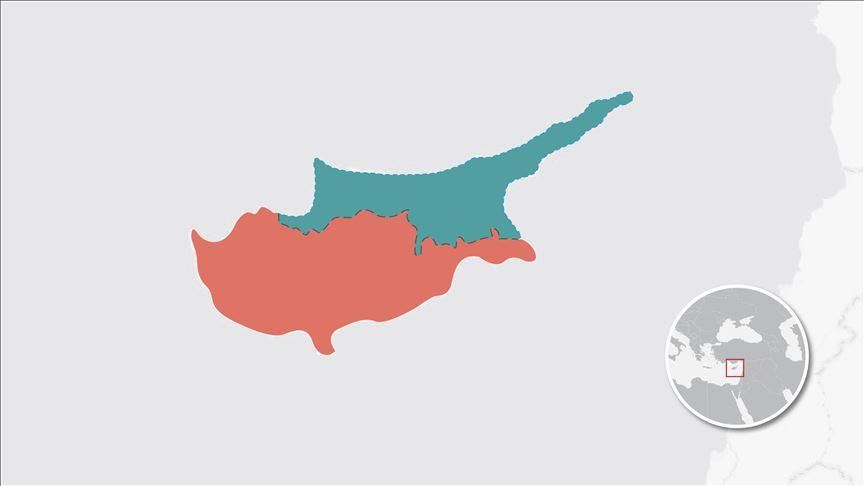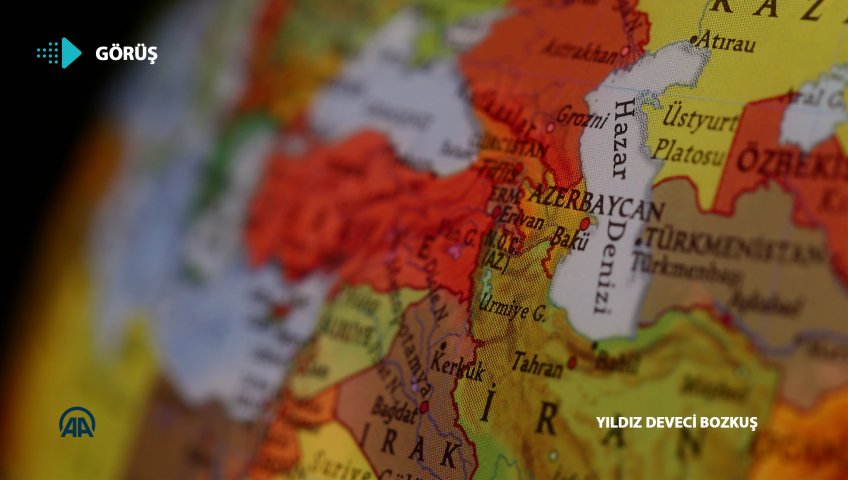
Daily Sabah (11 Kasım 2019)
Merve Şebnem Oruç
As is widely known, the U.S. Congress has been threatening Turkey with sanctions almost daily, after Turkey's unilateral intervention into northern Syria last month with Operation Peace Spring. The operation was undertaken to remove all terrorist elements along Turkey's border including the terrorists of the U.S.-backed People's Protection Units (YPG), the Syrian offshoot of the outlawed PKK.
In line with this, the U.S. House of Representatives recently passed two bills against Turkey, which were a sign of further deterioration in Turkish-American relations, which are already at rock bottom. One of the bills had appeared and been shelved several times over the past few decades. Armenian-American lobbies have pushed forward such a bill for decades, but American lawmakers had not passed it in the past to avoid damaging relations with their crucial NATO ally, Turkey.
The non-binding resolution in question, passed by the House by 405 to 11, officially recognizes the "Armenian Question" i.e. the events during the Ottoman Empire, as "genocide." It was a symbolic move, which has revealed how Washington is furious over Turkey's intervention and that Congress cannot control its anger.
According to Turkey, the Armenian question is cynically weaponized again and again for political pressure over Ankara even though it wants the historians to say the last word instead of politicians for the sake of finding the truth. As Turkey claims, the U.S. House resolution is motivated less by a desire to reach a historical truth than by the intention to punish Turkey and President Recep Tayyip Erdoğan.
Intolerance toward Omar's view
So much so that the U.S. Democratic Party Congresswoman Ilhan Omar has faced harsh criticisms on all sides of the U.S. political spectrum since she didn't support the aforementioned congressional resolution.
Several U.S. representatives who voted "yay" admitted that their motivation was to punish Turkey's "unacceptable" behavior toward the U.S. and nothing more, which is a nonsensical reason. In the meantime, Ilhan Omar, after voting "present" (abstain) instead of "yay" was crucified in the U.S.
Washington could not tolerate a different approach on the matter. Defending herself, Omar stated that "accountability and recognition of genocide should not be used as a cudgel in a political fight" but should instead "be done based on academic consensus outside the push and pull of geopolitics." She is absolutely right but the haters were ready to hate her as well as Turkey.
Sticking to her stance, Omar argued, "A true acknowledgement of historical crimes against humanity must include both the heinous genocides of the 20th century, along with earlier mass slaughters like the trans-Atlantic slave trade and Native American genocide, which took the lives of hundreds of millions of indigenous people in this country," and further infuriated U.S. lawmakers, so-called "Turkey experts," lobbies and media outlets in Washington.
The Americans who massacred Native Americans by intent and bought and sold Africans as slaves for years are the last people to talk about claims of genocide, but who cares about their own butcheries in the West?
There is no doubt that the resolution over the Armenian question is an act of revenge against Turkey's intervention. Politics was the main reason why the U.S. did not do such a thing in the past, and why it has recognized the Armenian question as genocide today. Maybe we should see this resolution as "worthless" as President Erdoğan said; however it might also be good to look at Turkey's perspective on the events of 1915.
The question of intent
As I said, the question is academic in the first place. The concept of genocide as a crime did not exist until World War II and was formalized 30 years after it. So, there's no liability at stake for the Ottoman Turks or their heirs.
And yet, Turkey is eager to initiate a process for an honest and open dialogue with Armenia. However, the current debates cannot go beyond the "he said, she said" level, as the critics say. International acceptance of describing the 1915 events as genocide is growing while Turkey argues that the Armenian claims of "genocide" fail to meet the key element, as genocide has a very specific meaning. Turkey says that the key element of the Armenian's claims is missing: intent.
The Convention on the Prevention and Punishment of the Crime of Genocide, which was adopted by the U.N. in 1948 defines the crime of genocide as "... any of the following acts committed with intent to destroy, in whole or in part, a national, ethnical, racial or religious group..."
The term "intent to destroy" here means a "specific intent." So, those who committed genocide had to have intent for a specific result at the end. For instance, there is a difference between the crimes of manslaughter and murder. Someone dies in both cases but the first can be an accidental incident while the latter has a specific target and intent.
Tragic period
That being said, the final years of the Ottoman Empire were a tragedy for all the people of the empire including the Turks, Armenians and many others who suffered immensely. Turkey does not deny the suffering of Armenians, including the loss of many innocent lives, during World War I. However, a greater number of Turks died, were killed or displaced during the years leading to and during the war.
The displacement and killing of Armenians during that time is not unique by itself, according to Turkish historians. At least 4.5 million Ottoman Muslims perished from 1865 to 1922, while many more died that are uncounted, millions had to flee their homelands in the Balkans and the Caucasus during this period. Anatolia and Istanbul have become a shelter for those who could survive, and that is why the Bosnian, Georgian, Circassian-origin peoples, and many others, are part of the Turkish population today.
For this reason, Turkey does not accept the Armenian claims of "genocide." Turkey rejects the one-sided presentation of this tragedy as genocide by one group against another while the tragic consequences for other groups are belittled.
The motive and the cause
As a matter of fact, the Armenian militia's alliance with the Russian army and deliberate assaults on Turkish villages in eastern Anatolia while the Ottoman army was fighting on other fronts were the main motives, and thus it was a mandatory transfer that the Ottoman Empire ordered in 1915 the Armenian population living in or near the war zone be relocated from the advancing Russian army's supply routes and transport lines to the south. Armenians who were away from the front, who were reported and suspected to be involved in collaboration were also not excluded in this mandatory transfer, according to historical documents.
So, it was the Ottoman government's attempt to stop an armed rebellion against an empire on the brink of collapse. It was not about the race, ethnicity or religion of Armenians which has to be relocated, it was because of the Armenian collaborators' violence. What happened on that front should be viewed as a part of the Great War in its totality.
I mean, there are a number of factors at play in that complex period, such as the loss of the Balkan War, the outbreak of World War I, the Caucasus Campaign of the Russian Empire against the Ottoman Empire, the Ottoman defeat in the Battle of Sarıkamış, the Siege of Van, or the Van Resistance, a battle between Ottoman forces and the militias of Dashnak, an Armenian nationalist and socialist political party supported by the Russian army, and much more.
The Gallipoli example
Let's take a look at the British landings at Gallipoli (Çanakkale), for instance. Historians who write about Gallipoli hardly mention the Armenians – and writings about Armenians rarely mention Gallipoli. But prominent researchers, even the ones who accept what happened in 1915 as genocide, say there is a strong link between the Gallipoli campaign and the Armenians' relocation.
The Battle of Gallipoli was one of the most critical scenes in Turkey's history. Britain and France opened an overseas front in Gallipoli in East Thrace and tried to overthrow the Ottomans. The Russian Empire was promised the capital Istanbul by the two of the Entente Powers of World War I. It was a fight for the survival of a nation, a struggle for life or death.
A prediction made by the German Ambassador Wangenheim is worth mentioning. With the outbreak of the war in August 1914, U.S. Ambassador Henry Morgenthau warned Wangenheim that the Turks would turn their face to the Armenians in Anatolia, to which Wangenheim replied: "So long as England does not attack Çanakkale... there is nothing to fear. Otherwise, nothing can be guaranteed."
While another historian, Ronald Suny, provides evidence that the crisis precipitated by the Entente bombardment of the Dardanelles fortresses in March 1915 was a trigger, Donald Bloxham, a professor of modern history, believes that the arrests of the Armenian intelligentsia on April 24 came after the news that the British and the French were about to land their troops at Gallipoli.
The Turkish Foreign Ministry publications admit "under wartime conditions exacerbated by internal strife, local groups seeking revenge, banditry, famine, epidemics and a failing state apparatus all combined to produce what became a tragedy," even though "the Ottoman government took a number of measures for safe transfer during the relocation."
Some unruly government officials who were involved in the crimes against the convoys were court-martialed and sentenced to capital punishment by the Ottoman government in 1916, much before the end of the war, the Turkish Foreign Ministry says quoting from historical documents. The ministry adds "no authentic evidence exists to support the claim that there was a premeditated plan by the Ottoman government to kill Armenians."
Harbord Military Mission
Turkish Minister of Defense Hulusi Akar published a book titled "Harbord Military Mission to Armenia" earlier this year revealing the story of an American fact-finding mission and its effects on Turkish-American relations.
In his book, Akar analyzes the report of the military delegation headed by Maj. Gen. James G. Harbord, who came to Istanbul in August 1919 under the approval of U.S. President Woodrow Wilson and the U.S. Congress in order to investigate the situation in Anatolia and the Caucasus. Displaying the facts in full detail and in the light of historical sources from the U.S. National Archives, Akar found that even U.S. documents says that the tragedy of Armenians in Turkey was an unavoidable result of uncontrolled propaganda.
Harbord, who was brainwashed by Armenian propaganda before he started his tour and expected to find evidence that the Armenians had been subjected to mass atrocities, realized that the reality was different when he came to the region. Harbord found that there were no settlements in Anatolia where the Armenians were the majority, Akar's book reveals.
According to the Harbord Military Delegation, there was no evidence that the Turkish army was planning an assault on the Russian border, and that the Turkish people were preparing an attack around Erzurum toward the Armenian population, contrary to the news. Instead, the delegation reported that Turkish people were in fact subjected to Armenian atrocities and attacks.
The first report, which was highly valued by Adm. Mark Lambert Bristol was written by Naval Intelligence Officer Lt. Robert Steed Dunn, who made a research trip to Anatolia, the Black Sea coast and the Caucasus. He reported that the Brits returning from their temporary duty in Erzurum encouraged the Russian Armenians to kill Muslims. Thus, they wanted to provoke Muslims in order to gain sympathy for Armenians, Lt. Duun added, according to Akar's notes.
In his report to Adm. Bristol, Gen. Harbord says, "In the places he visited, Armenians are slowly returning to their homes and are not encountering any violence. In some cases, the goods they have were returned to them, and in some cases, rent was paid for the period in which they were relocated."
"I do not believe that there is a threat of that Turkish troops will go to Russian Armenia to slaughter Christians," adds Harbord.
Another noteworthy issue in Akar's book is that Gen. Harbor's words about the Turkish population. Harbord says that Turks paid a great price during the war on the contrary to the widespread belief. Some 80-90% of the Turks who joined the army did not return to their homes. The evidence of that is the absence of men aged 20 to 25 years in the villages. The Turks were not aggressive, but rather dissatisfied with the British and French activities in their country."
Akar's book reveals that Harbord's final report also included the following statements: "There is a lot of evidence showing that Turks and Armenians can live together peacefully when left alone without the provocation of other states. Their existence side by side in the same land for 500 years has undoubtedly proved their commitment and mutual interests."
The U.S. House of Representatives' resolution recognizing the Armenian question as genocide is obviously a political bargaining chip being played against Turkey; unfortunately, it lacks the evidence of facts. However, if they looked at their own national archives, they would have found the truth and not made such a mistake that has further damaged Turkish-American relations.
https://www.dailysabah.com/columns/merve-sebnem-oruc/2019/11/12/was-there-an-armenian-genocide-or-is-it-a-political-weapon-targeting-turkey?fbclid=iwar3vic3tmvmey_ts1fslj3grbxjhgulyvpwbrohsjz5qcgc7kg4qiqu6cf4
© 2009-2025 Avrasya İncelemeleri Merkezi (AVİM) Tüm Hakları Saklıdır
Henüz Yorum Yapılmamış.
-
 THE SOLUTION INHERENT IN THE NATURE OF THE CYPRUS DISPUTE - 16.03.2021
THE SOLUTION INHERENT IN THE NATURE OF THE CYPRUS DISPUTE - 16.03.2021
Tugay ULUÇEVİK 17.03.2021 -
 TARİHTEN GÜNÜMÜZE DAĞLIK KARABAĞ - İRAM - 14.10.2020
TARİHTEN GÜNÜMÜZE DAĞLIK KARABAĞ - İRAM - 14.10.2020
Yıldız DEVECİ BOZKUŞ 19.10.2020 -
KKTC DAVA EDİLDİ
Ata ATUN 31.05.2012 -
 ECHR CONFIRMS FREEDOM OF EXPRESSION IN ARMENIAN CASE
ECHR CONFIRMS FREEDOM OF EXPRESSION IN ARMENIAN CASE
Jeremy SALT 27.10.2015 -
SEÇİMİ HRİSOSTOMOS KAZANDI
Ata ATUN 17.02.2013


